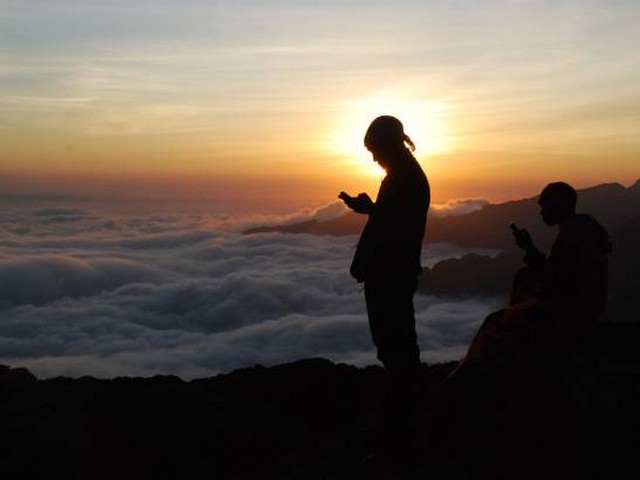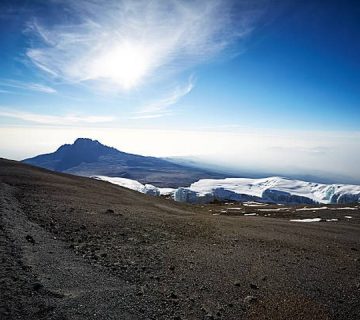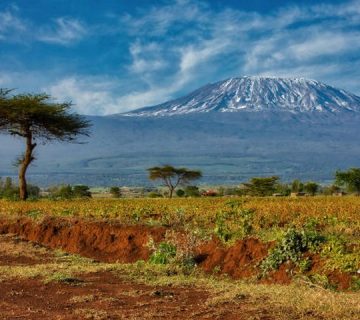Eco-friendly Trekking Meals On Kilimanjaro: A Guide to Sustainable Eating on Your Climb
As you prepare to conquer the majestic Mount Kilimanjaro, you not only gear up to challenge your physical and mental boundaries but also to immerse yourself in an environment that is as fragile as it is beautiful. At Kilimanjaro Centre for Trekking and Ecotourism (KCTE), we believe that the path to the summit is paved not only with perseverance and determination but also with a deep respect for nature. That’s why today, we delve deep into the essentials of eco-friendly trekking meals on Kilimanjaro, ensuring your adventure is as kind to the planet as it is exhilarating.
Why Eco-friendly Meals Matter on Kilimanjaro
Climbing Kilimanjaro is an adventure of a lifetime, and maintaining the pristine nature of this iconic mountain is crucial. Eco-friendly trekking meals are not just a preference; they are a necessity. By choosing sustainable meal options, you contribute to reducing waste, minimizing environmental impact, and protecting the unique biodiversity of the Kilimanjaro region.
The Impact of Sustainable Practices
Sustainable eating on Kilimanjaro helps in several ways:
- Reduces waste: Minimizing packaging and using biodegradable materials helps keep the trails clean.
- Lowers carbon footprint: Local and organic food choices mean less transportation is required, which reduces carbon emissions.
- Supports local communities: Purchasing local produce benefits the local economy and promotes community well-being.
Crafting Eco-friendly Trekking Menus
At KCTE, our culinary philosophy is simple – nourish the body while respecting the earth. Our trekking menus are designed to be environmentally friendly, nutritious, and delicious, providing you with the energy you need to reach the summit.
Ingredients That Make a Difference
We prioritize ingredients that adhere to the following criteria:
- Local and organic: Fresh produce from local farms ensures minimal transportation and supports local farmers.
- High-energy and natural: Foods like oatmeal, nuts, and dried fruits offer sustained energy with minimal processing.
- Packaging-conscious: We opt for bulk ingredients with minimal packaging to reduce waste.
Sample Eco-friendly Meal Plan
Here’s a glimpse of what a day’s meal might look like on your trek:
- Breakfast: Steamed sweet potatoes and fresh fruits served with locally sourced honey and herbal tea.
- Lunch: High-energy grain salads with organic vegetables topped with seeds and nuts.
- Dinner: Locally sourced vegetable stew with whole grain bread, followed by a dessert of seasonal fruits.
The Role of Hydration in Sustainable Trekking
Staying hydrated is crucial on Kilimanjaro, but single-use plastic bottles are a no-go. We encourage the use of refillable water bottles and provide water stations where you can fill up with purified water, reducing plastic waste and keeping the mountain clean.
Eco-friendly Practices Beyond Meals
Sustainable trekking extends beyond what you eat. It encompasses how you interact with the environment and the practices you adopt on your journey.
Leave No Trace Principles
At KCTE, we adhere strictly to Leave No Trace principles:
- Plan ahead and prepare: Ensuring minimal impact starts with proper planning.
- Travel and camp on durable surfaces: Stick to trails and campsites.
- Dispose of waste properly: Whatever you pack in, pack out.
- Leave what you find: Preserve the mountain’s natural heritage.
- Minimize campfire impacts: Use a lightweight stove for cooking.
- Respect wildlife: Observe from a distance.
- Be considerate of other visitors: Ensure a positive experience for everyone.
Engaging with Local Culture
Understanding and respecting the local culture is also part of eco-friendly trekking. Engage with local guides, learn a few phrases in Swahili, and experience the rich cultural backdrop of the Kilimanjaro region.
Why Choose KCTE for Your Kilimanjaro Adventure?
Choosing KCTE means partnering with a team that is deeply committed to eco-tourism and sustainable practices. Our expert guides and staff are not only experienced but also advocates for environmental conservation. By booking your climb with us, you ensure a high-quality, eco-friendly experience that also gives back to the local community.
FAQs: Eco-friendly Trekking Meals on Kilimanjaro
Q: Can special dietary needs be accommodated with eco-friendly meals?
A: Absolutely! We can tailor your meals to meet dietary restrictions such as vegan, vegetarian, or gluten-free, all while maintaining eco-friendly standards.
Q: How do you ensure food safety while focusing on eco-friendly practices?
A: Our meal preparation follows strict hygiene standards. We ensure all foods are thoroughly cooked and stored at appropriate temperatures, using sustainable methods.
Q: Are eco-friendly meals included in the trekking package?
A: Yes, all our trekking packages include eco-friendly meals designed for high energy and minimal environmental impact.
Ready for Your Eco-friendly Adventure?
Embracing eco-friendly trekking meals on Kilimanjaro is more than a choice; it’s a commitment to preserving one of the world’s most awe-inspiring natural wonders for future generations. Join us at Kilimanjaro Centre for Trekking and Ecotourism (KCTE) as we embark on this sustainable journey to the roof of Africa. Let’s make your climb memorable not just for the heights you reach but for the positive impact you leave behind. Book your eco-friendly Kilimanjaro adventure today and step into a larger story of conservation and mindful exploration.
Climb smart, eat sustainably, and leave a legacy of respect—climb Kilimanjaro with KCTE.




